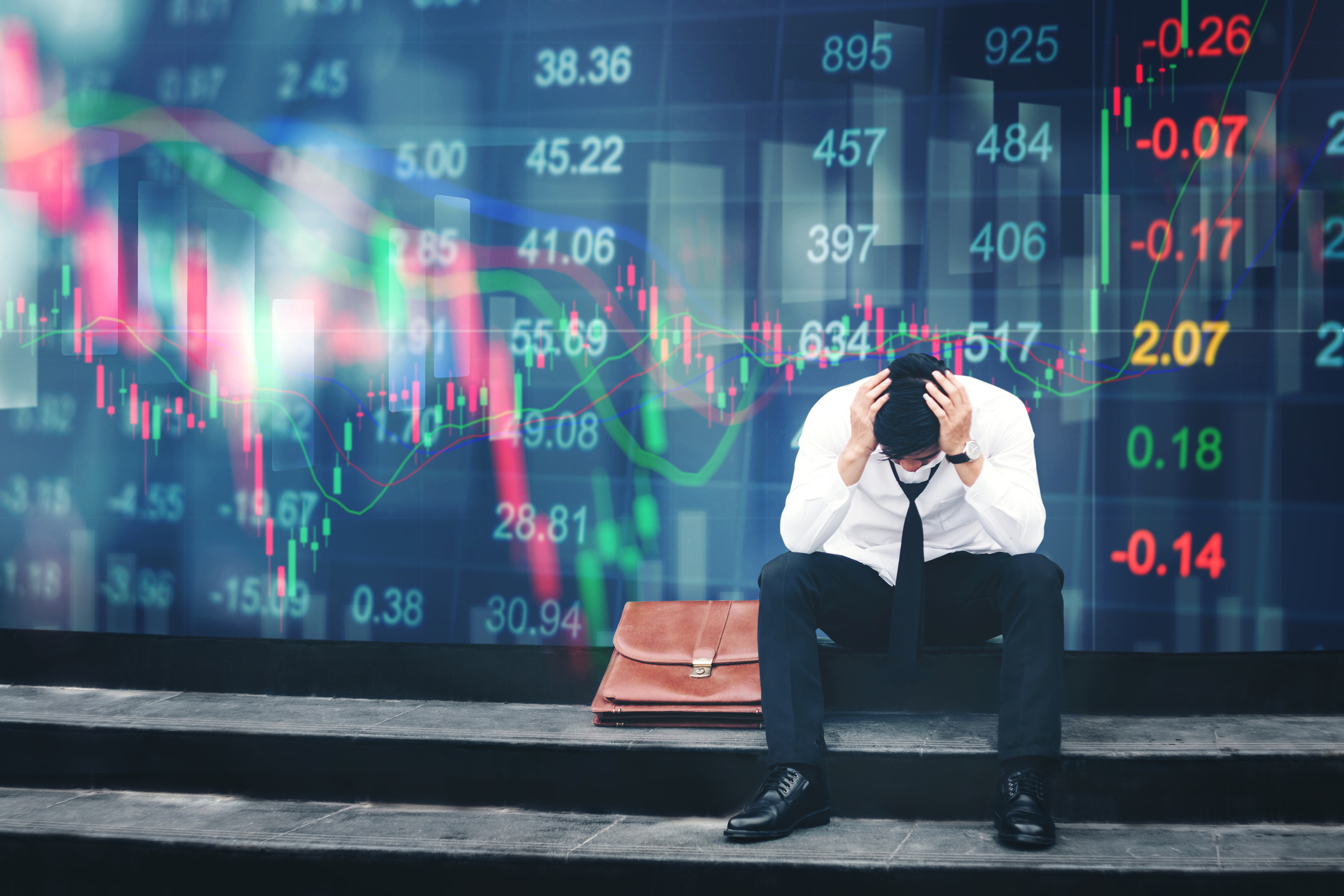Should I Be Worried About a Recession Crashing the Economy?

Credit to Author: Anne Gaviola| Date: Thu, 15 Aug 2019 19:20:53 +0000
Wednesday was the worst day of the year for the U.S. stock market, leading investors and economists to suggest the economy is headed for a recession. But how likely is that, and more importantly, what can you do to protect yourself, even if you only have $12 in your bank account? We break it down.
What happened?
It didn’t come from the stock market, although the ensuing massive selloff was an aftershock. The signal came from the U.S. bond market, which is a marketplace where investors can buy and sell debt from companies and governments. At almost $40 trillion in value, the bond market is double the size of the $20 trillion American stock market. If you want to know what’s really going on, you’re much better off checking out the bond market.
That’s because the bond market tells you how companies and governments borrow money—and the bar to prove that you’re creditworthy is high. Stock markets are like a rollercoaster, bouncing up and down, but they only tell the story of the whims of investors. The bond market can paint a good picture of what’s really going on, based on less subjective information.
Something really weird happened on Wednesday: the “yield,” which is the payout you get for loaning money through a bond, was higher on a two-year U.S. Treasury note than on a 10-year U.S. Treasury note. If you think about it, you should always get paid more if you’re lending money out for a longer period of time. But on Wednesday, the yield curve inverted and it was the other way around. Why? Because investors see a recession—which is at least two consecutive quarters of economic decline—looming.
This phenomenon is a pretty reliable indicator, according to global investment bank Credit Suisse—the last five times the yield curve inverted like this, there was a recession, within 22 months.
Timing is a factor too. The U.S. economy has been growing for an unprecedented 122 months following the Great Recession which spanned from December 2007 until June 2009. Usually, the U.S. goes through a recession every 57 months and you could argue that we’re overdue for another economic downturn.
And there’s President Donald Trump’s trade war with China causing problems around the world. On Twitter, he blamed the American Central bank, but economist and senior fellow at the Macdonald-Laurier Institute, a public policy think tank, Linda Nazareth said “this has been killed by trade.” She points out that we’re seeing problems in China, the U.K., and Germany, as well as stocks.
Last month, U.S. senator and Democratic presidential candidate Elizabeth Warren had a chilling prophecy for America and warned that a recession is coming. “I see a number of serious shocks on the horizon that could cause our economy’s shaky foundation to crumble,” she wrote.
According to Julia Coronado, founder of research firm MacroPolicy Perspectives, if a U.S. recession is coming, other countries will be hit too. “The global economy is more interconnected than ever, so everyone is in this together,” she said.
Does all of this mean a recession is definitely in the cards? There are a growing number of signs that say “yes.”
What should I do?
Parts of Europe as well as China are already seeing an economic slowdown, but in the U.S., Coronado suggests keeping an eye on housing and business investment, which have already lost momentum. Sometimes the fear of a recession can actually trigger one.
Coronado explains that if you’re not confident about your job situation, you’re less likely to take risks by doing things that help grow the economy, like buying a home, for example. “You would only do that if you’re very optimistic about your prospects,” she said.
Another thing to watch is consumer spending, which has remained strong, but could grind to a halt if people are nervous and decide to save their money rather than spend it. “When the consumer becomes cautious, then that is the start of the recession,” she said. That’s because consumer spending is such a big factor in keeping the American economy chugging along—responsible for more than two-thirds of U.S. economic activity.
According to Nazareth, “it’s scary because next year could be worse than this year.” So far, the American labour market has been strong, but that doesn’t mean it couldn’t be derailed. If that happens, typically, the youngest workers are hardest-hit during recessions—they are often the first to be laid off, or they don’t get hired in the first place.
Her advice is not to panic when you see dramatic headlines. An economic downturn is a double-edged sword for cash-strapped millennials and Gen Z. On the one hand, interest rates are likely to come down if there’s a recession, but it will be harder to qualify for credit.
“There’s no point worrying about it,” Nazareth said. “It’s going to be kind of rocky for years. Save as much as you can for uncertain times ahead when companies will be careful in terms of what they do for hiring. Be prepared for job losses. But remember that we came back from the worst crisis since the Great Depression, 10 years ago, to a nice little boom. It wasn’t perfect, and not everyone got what they wanted, but recessions don’t last forever.”
Follow Anne Gaviola on Twitter .